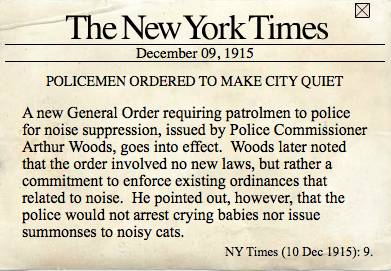“In a 2010 report titled Technology for a Quieter America, the National Academy of Engineering cited backup beepers as one of the six top noise sources people associated with behavioral and emotional consequences.”
— National Institutes of Health
The new Hyatt Place in Champaign is probably just as nice as the Hyatt Places in Atlanta and Madison. It probably has the same fatal flaw, which renders all new hotel construction unlivable: mandatory slamming doors.
A lobbyist convinced a bureaucrat that doors are unsafe unless they slam. This lobbyist represents the construction-industrial complex, specifically a company that manufactures fire doors, or “door closers.” If doors don’t slam, he warns, fire will eat you alive.
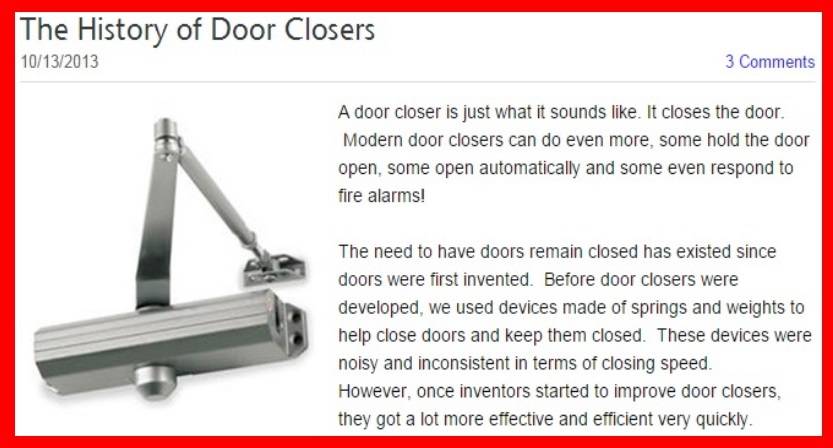
There aren’t many hotel fires these days, thanks to non-flammable construction materials and sprinkler systems. So it seems a little excessive, and kind of silly, to impose such an awful nuisance on every single person who tries to get some sleep in a modern hotel.
By saving that one in ten million persons injured by a hotel fire, our government injures ten million out of ten million persons. On the bright side, it’s a boon to AirBnB (and traditional BnBs).
The lobbyist would have you believe this problem solved. It’s an “old problem” according to Architectural Door Supply dot com (really).
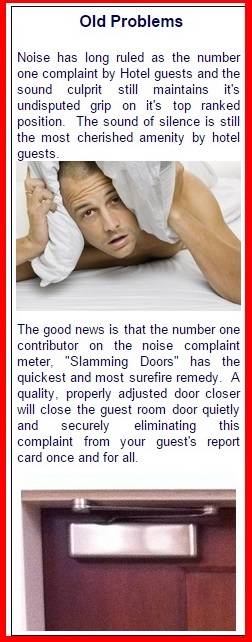
The gullible bureaucrat might be your local alderman, or an inspector at the city, state or federal level. The lobbyist works for NFPA, the National Fire Protection Association.
NFPA was originally a confederation of insurance underwriters. But since 1905, its members include “trade associations” and “manufacturing associations;” i.e. people who want to sell you things, and enact codes which will ensure you buy those things.

If you want to bid on a construction project in Champaign (section 2, page 6) or build a cell phone tower, you too will adhere to NFPA code.
Why do our elected officials subscribe to codes written by trade association profiteers? Because it’s easier than researching and writing them. That leaves more time for golf.
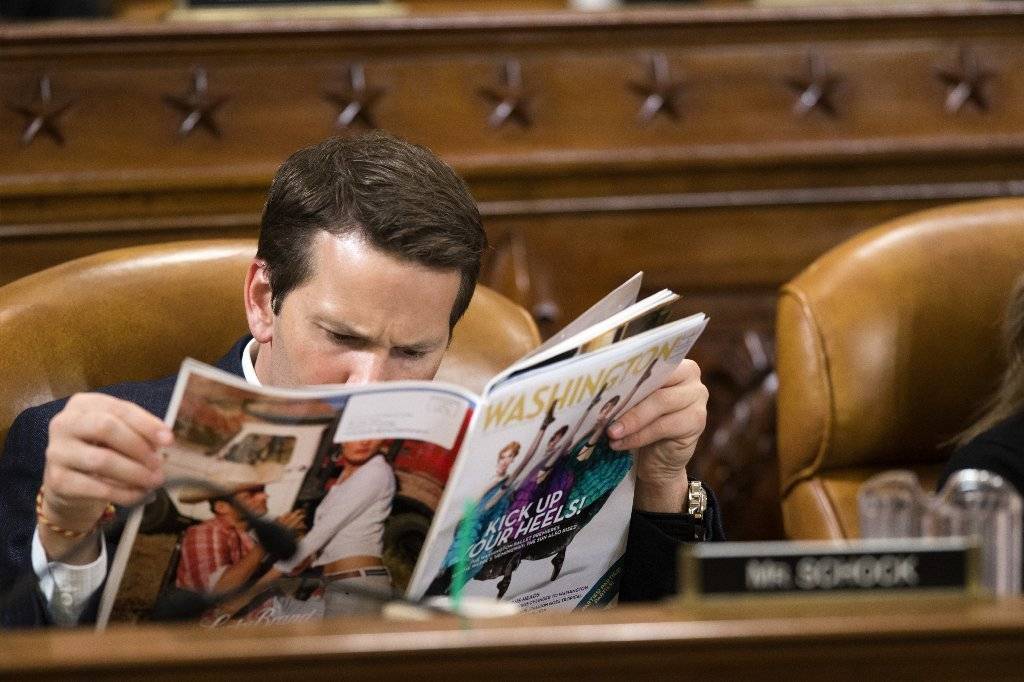
If you’d like to read NFPA’s proposed codes for fire doors, it’s here … for now. NFPA has a convoluted history of openness and access. When PublicResource.org published NFPA authored codes (as adopted by public governing bodies) the NFPA sued for copyright infringement. The worst Bad Laws are the ones you’re not allowed to read.
The founders of NFPA were driven by money, but their financial interest spurred the curious side effect of making people safer. Today’s NFPA doesn’t care whether door closers make Hyatt Place unlivable. They already got paid.
So you can’t sleep in a hotel. Unfortunately, staying home won’t help.
Inevitably a garbage truck is going to back down your street. When it stops BEEP-BEEP-BEEPING, you’ll hear the crash of an emptied dumpster. Two tons of steel dropped on concrete by a squeaky hydraulic lift. I’m sure it seemed like a good idea at the time.
Eventually, you’ll need to eat. Unfortunately, noise pollution at the supermarket is even worse than your home. Enemy Number One: the back-up beeper.
As one blogger colorfully phrased it — Some fat guy on a scooter just managed to piss off an entire grocery store.
He’s not alone in his contempt for obese shoppers. But if you don’t share that contempt, if you’re sympathetic toward people with mobility problems, that’s all the more reason to disdain the noise. Does the disabled person want to draw attention to himself and his disability? Are the people who use motorized shopping carts universally immune to noise nuisance? Of course not.
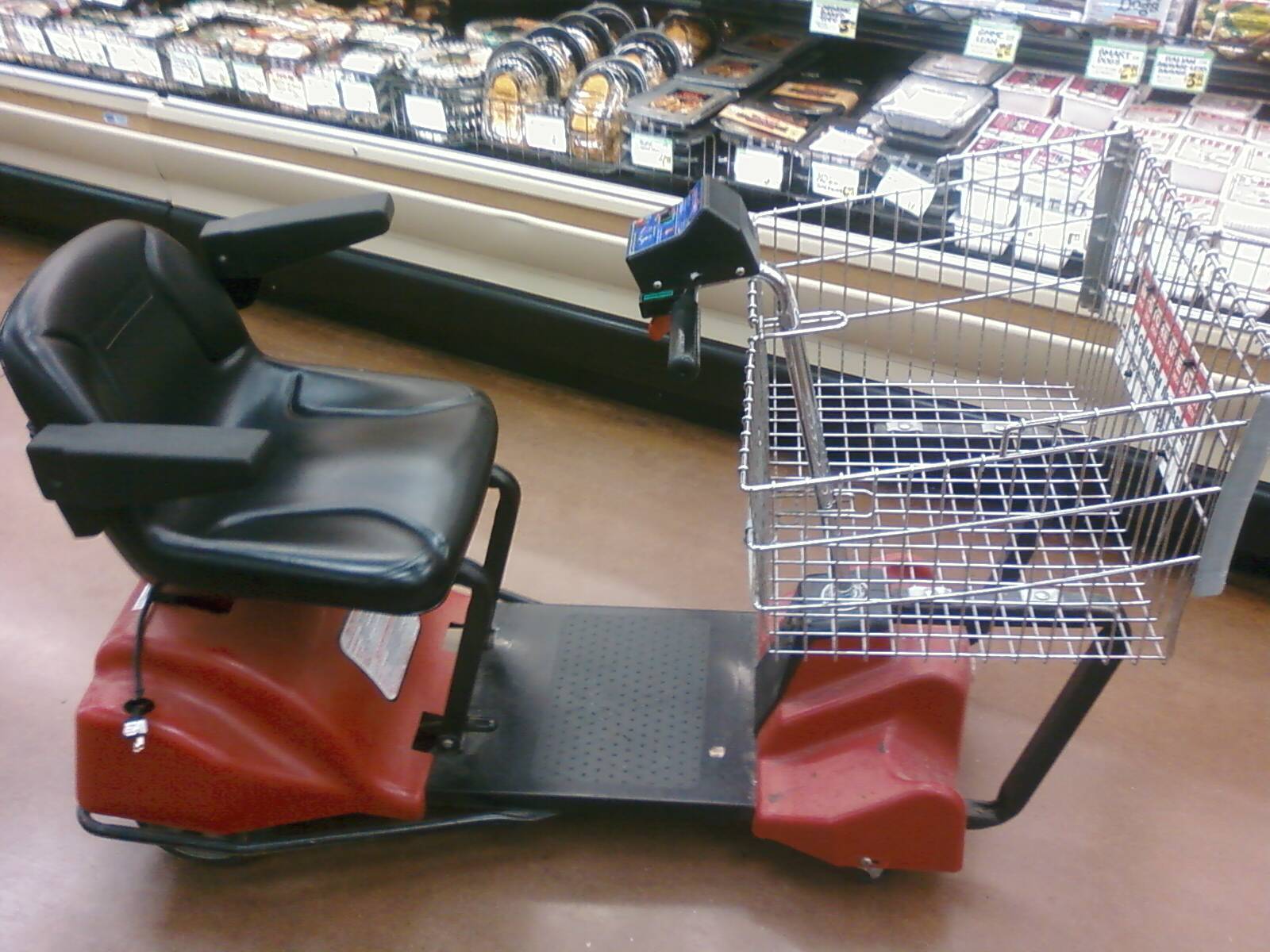
Last week in Simi Valley, I shopped with my brother-in-law, who — disabled by multiple sclerosis — owns his own scooter. It doesn’t beep when reversing. But because the big box stores have lawyers who fear lawsuits, their scooters make a racket.
There are alternatives. Fifty years into this experiment, we have the technology to replace blaring beeping with automated voices. Why shouldn’t your garbage truck, forklift or mobility scooter announce “warning, cuidado, backing up, revirtiendo!” in an authoritative robotic voice?
It can!
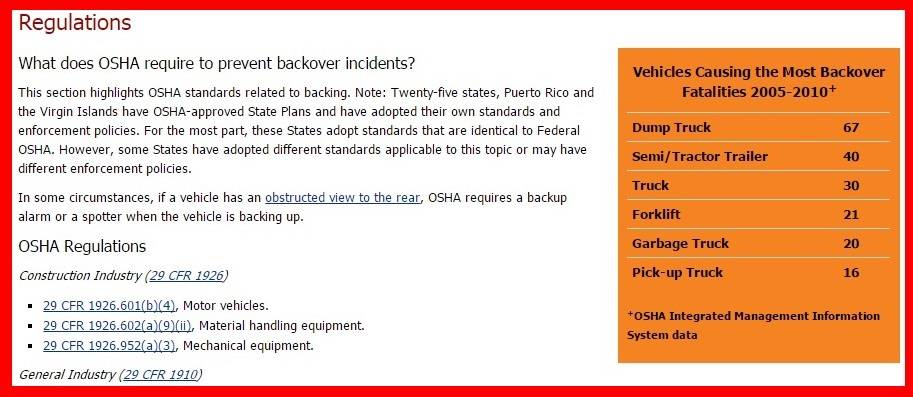
The Occupational Safety and Health Administration is the government entity charged with keeping workers safe. As you’d expect, it’s the agency that mandates the hostile workplace environment.
“Technologies that could mitigate the problems with backup beepers have existed for around two decades. Nonetheless, the conventional single-tone backup alarm still dominates roads and construction sites.”
-NIH, 2011
Here’s OSHA’s page. And here’s OSHA’s page addressing complaints. There’s a Facebook page for back-up beepers (not in favor). Noise Free America covered the topic a decade ago, triggering a quote in this Chicago Tribune article on the topic.
None of these articles seems concerned with the people that OSHA exists to protect: the employees. So I wonder, is anyone concerned about the workers at Meijer, Wal-mart, or any of the other supermarkets or warehouses? You can choose to shop only at the Co-op, or eat exclusively in restaurants (like they’re not noisy).
The workers don’t have that choice.
By now you’ve learned that you can’t sleep and you can’t eat, especially if you’re poor.
So then you get sick.
Unfortunately, the noisiest place, the worst place for your health is — you guessed it — the hospital.
Hospitals deal with a ton of bad laws, but they’re also driven by malpractice angst.
Thus, to keep anyone from dying without advanced warning, the med-tech industry promulgated a sensor (and an alarm) for any and every indicator that might forewarn of impending… anything.
From her hospital bed, 15 year-old Morgan Gleason pleaded for a sensible solution to this problem.
Gleason became an internet sensation.
Suffering from juvenile dermatomyositis, an autoimmune disease which causes fatigue (among other things) she chided the medical establishment for its insensitivity toward her need for sleep.
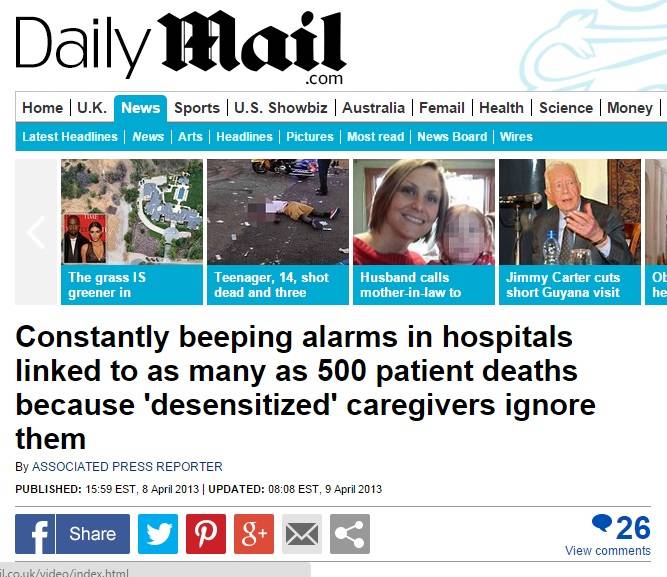
And yet, that’s the constant theme with mandatory noise pollution. The person mandating the noise thinks s/he’s making you safer.
Smile Politely’s search function tells me I’ve already written five articles featuring the phrase “noise pollution.” You’d think I might have covered the subject sufficiently. But in those days, I was simply trying to get our local government’s attention. None of those five concerns noise pollution mandated by government.
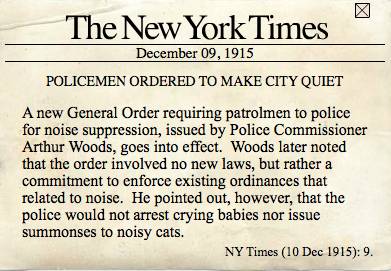
People have demanded noise abatement from their government for decades. And like me, they’ve sought relief through laws that are already on the books.
Why, then, does our government persist in mandating noise?








